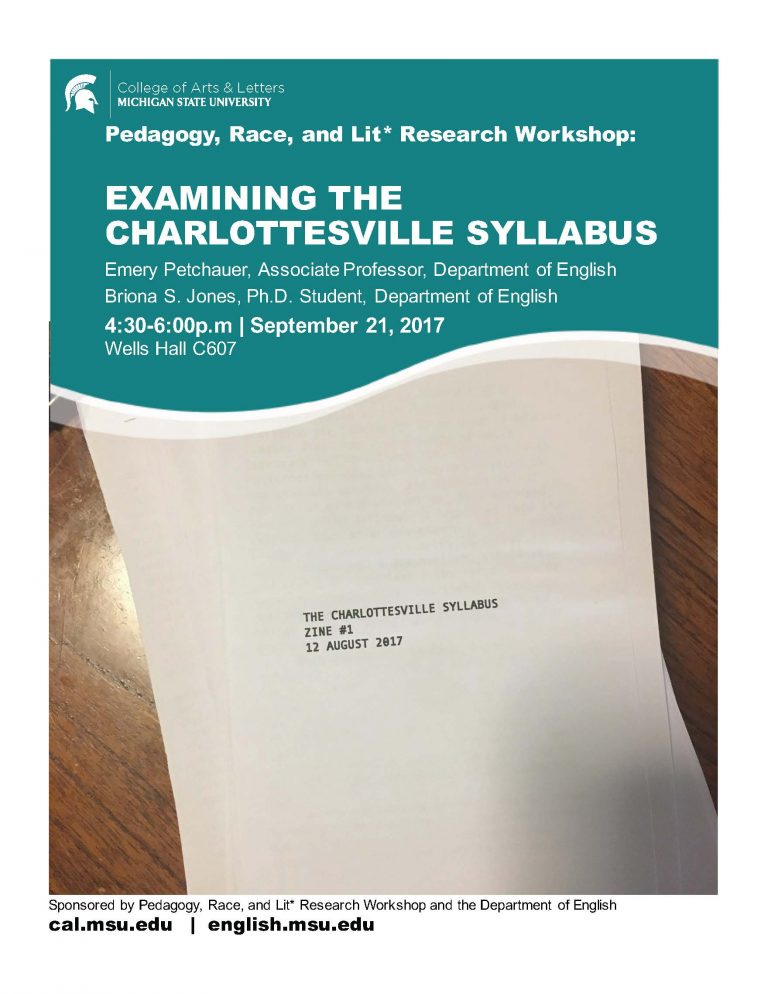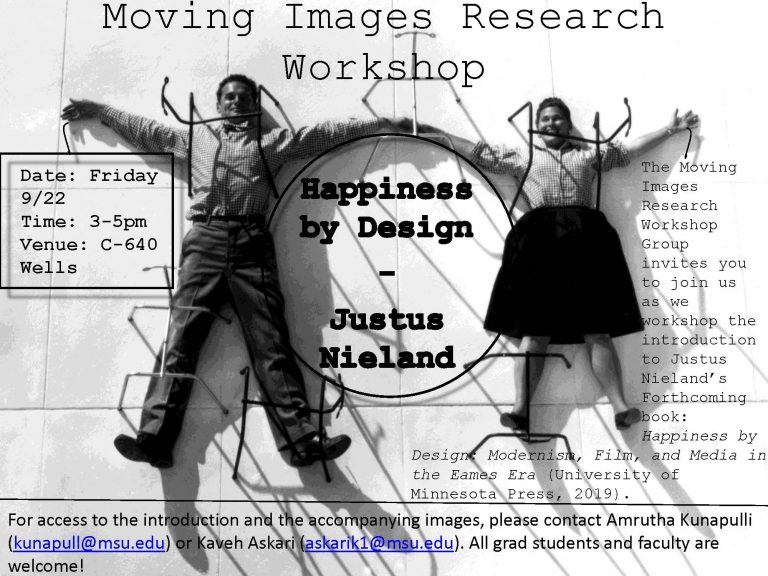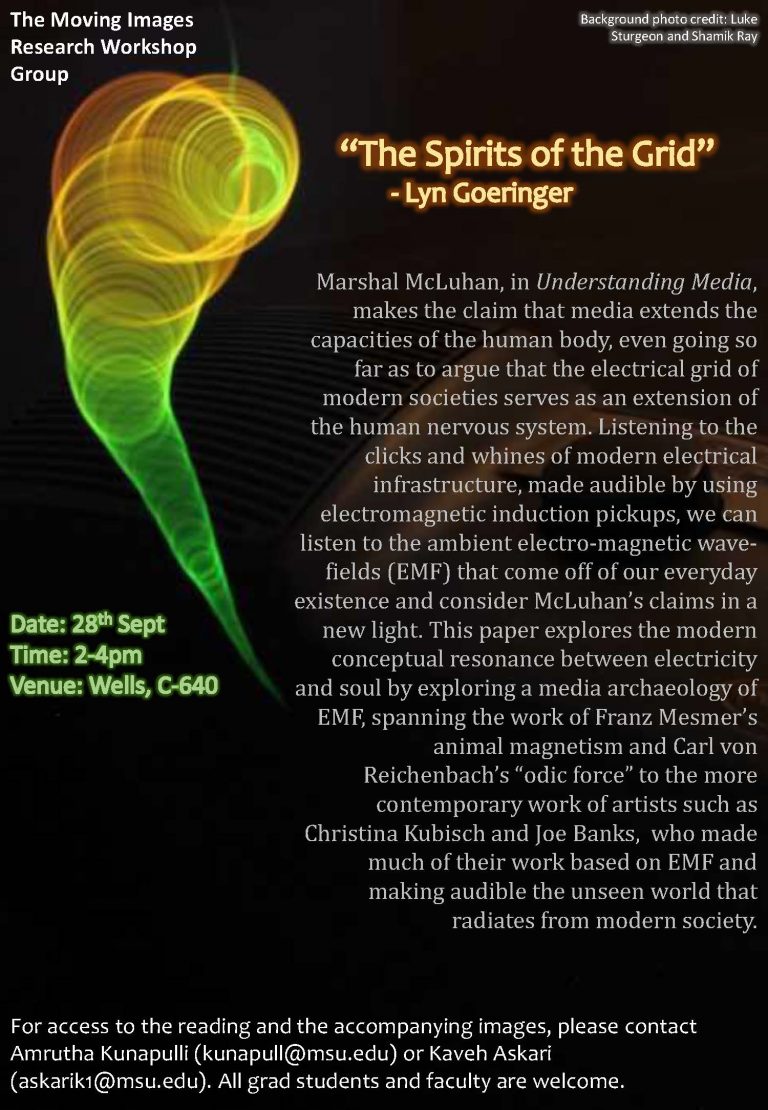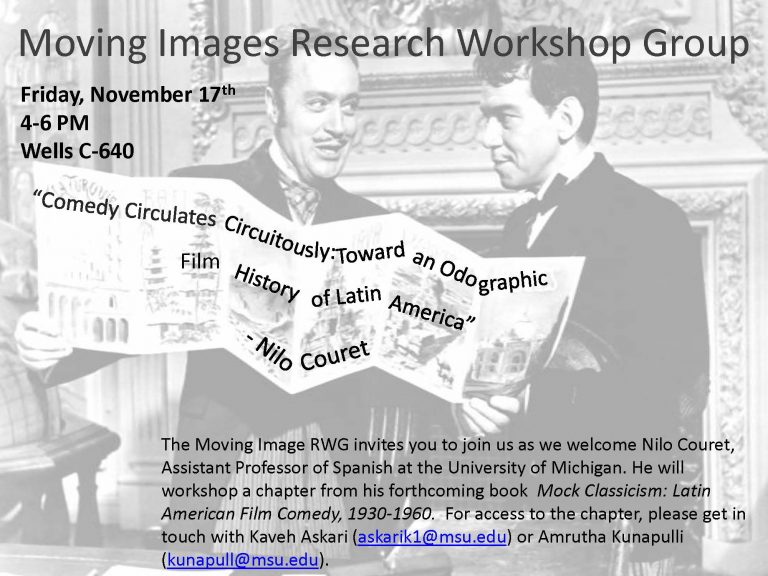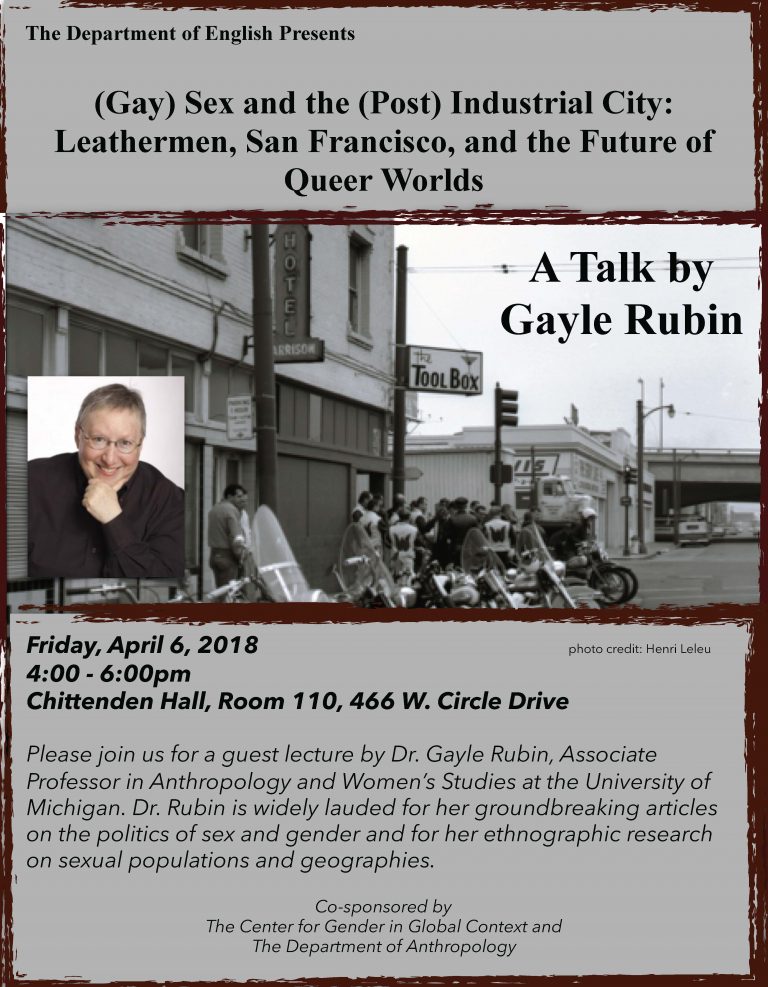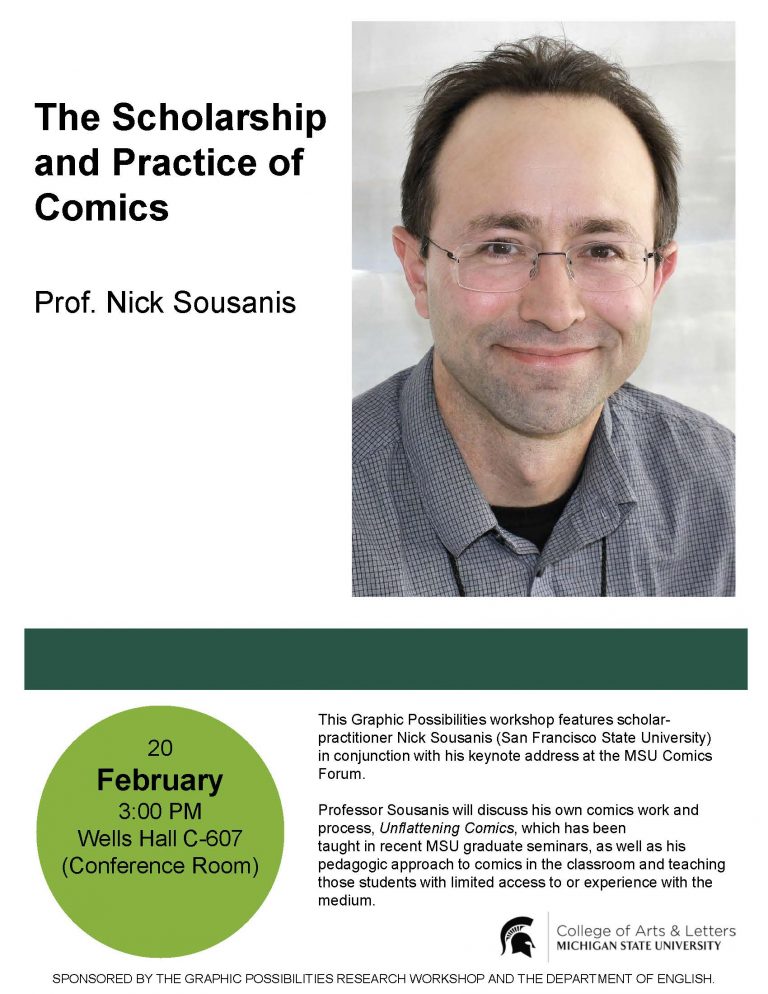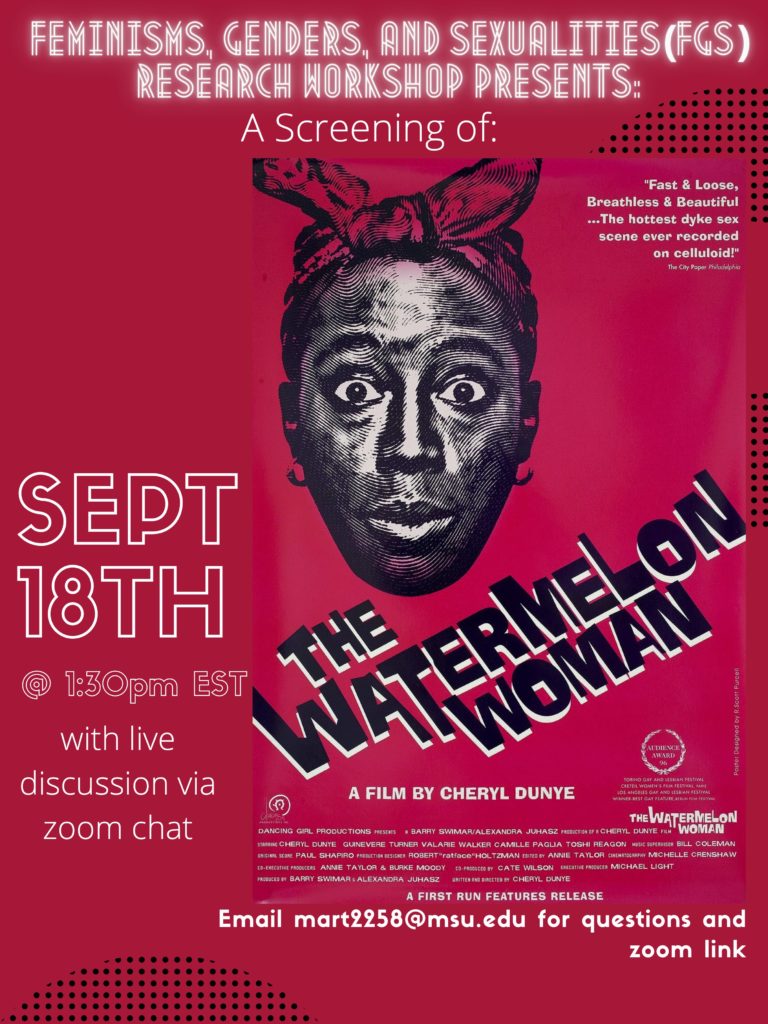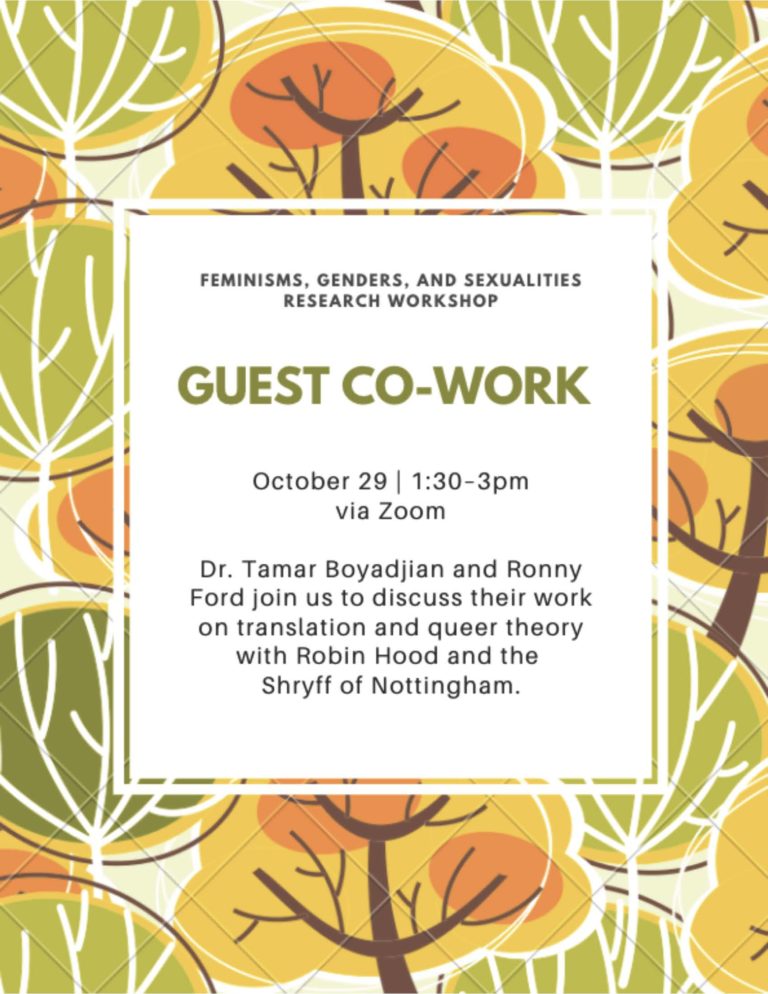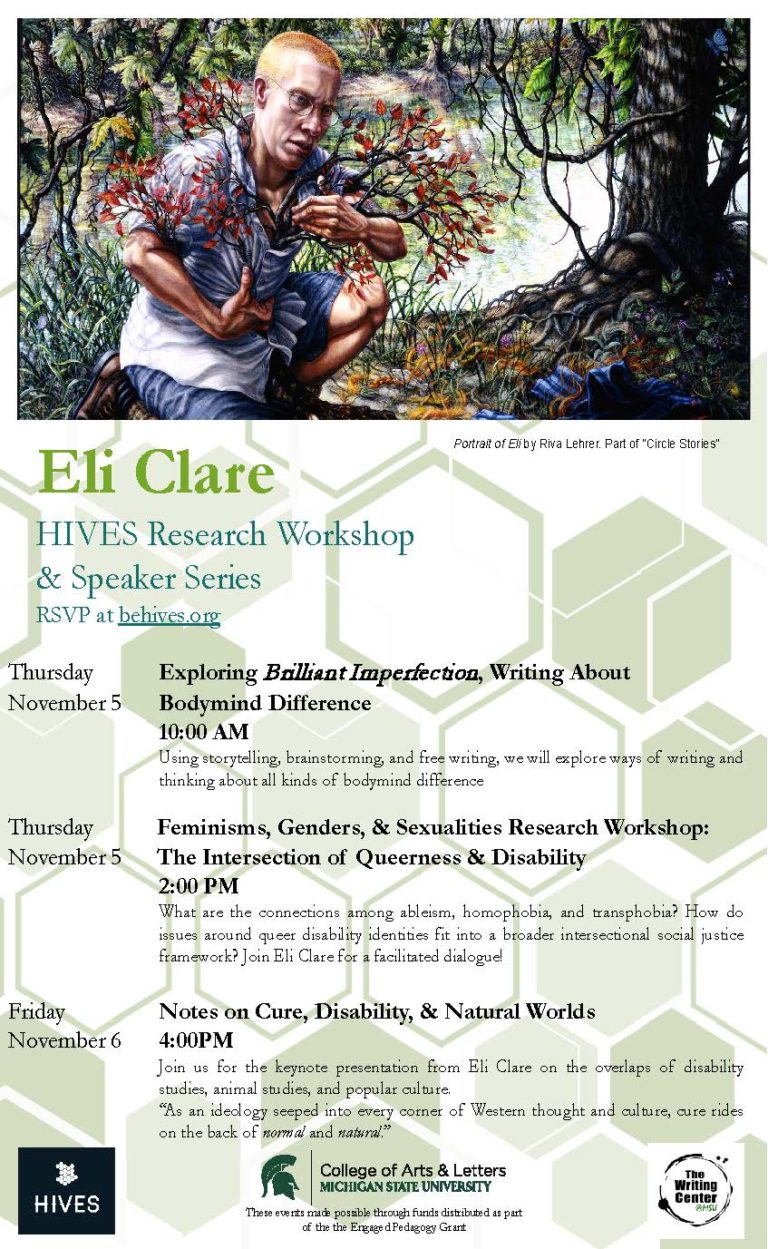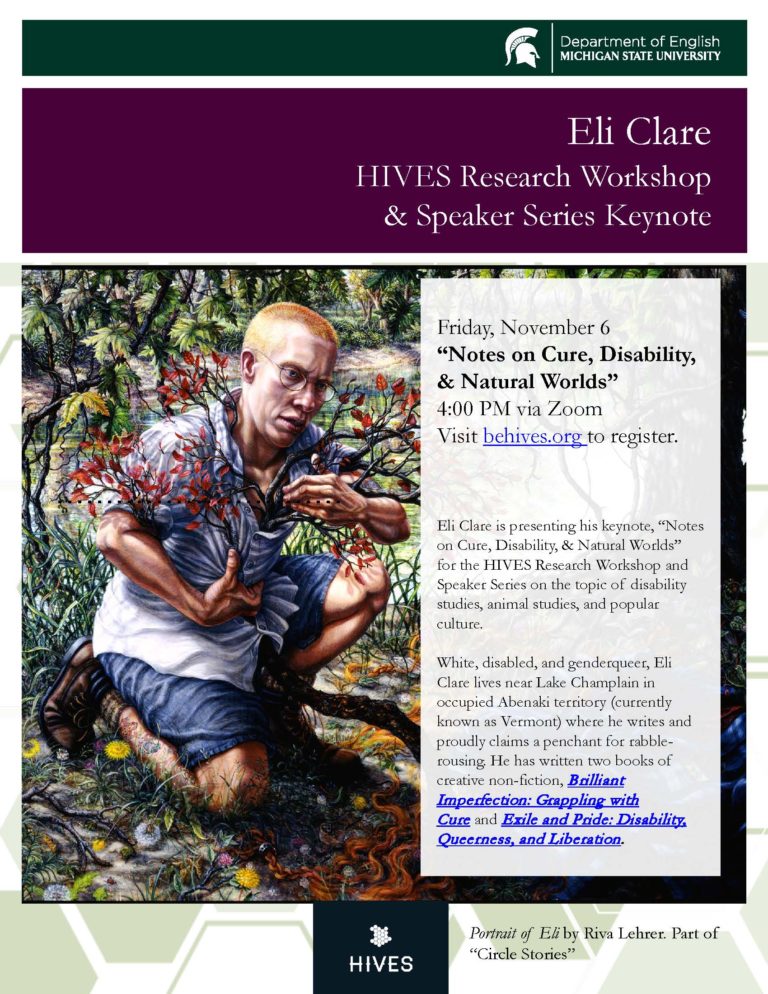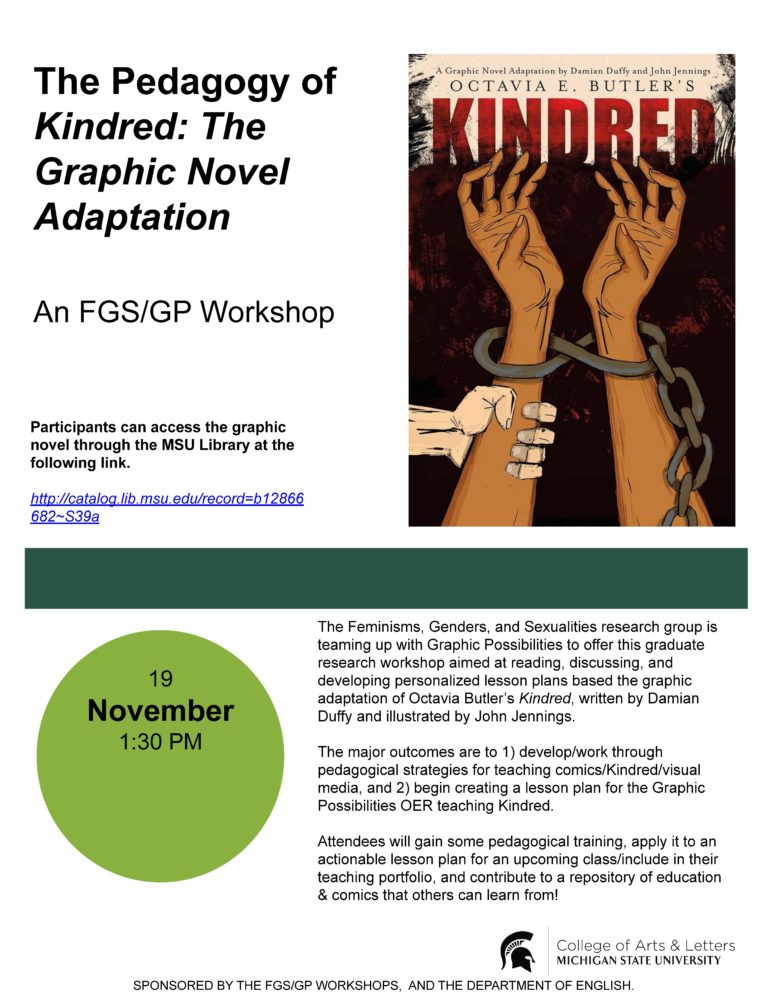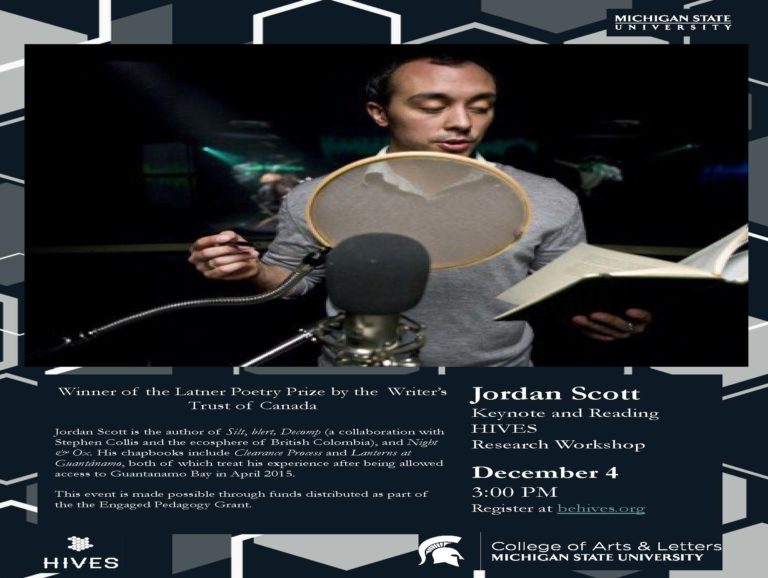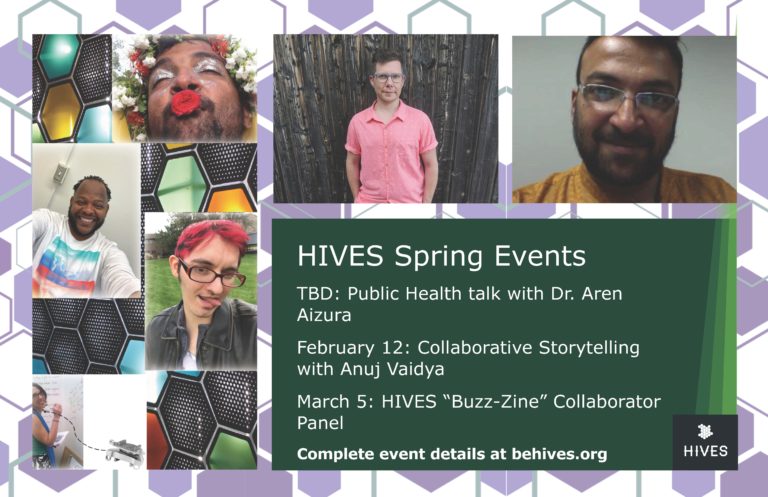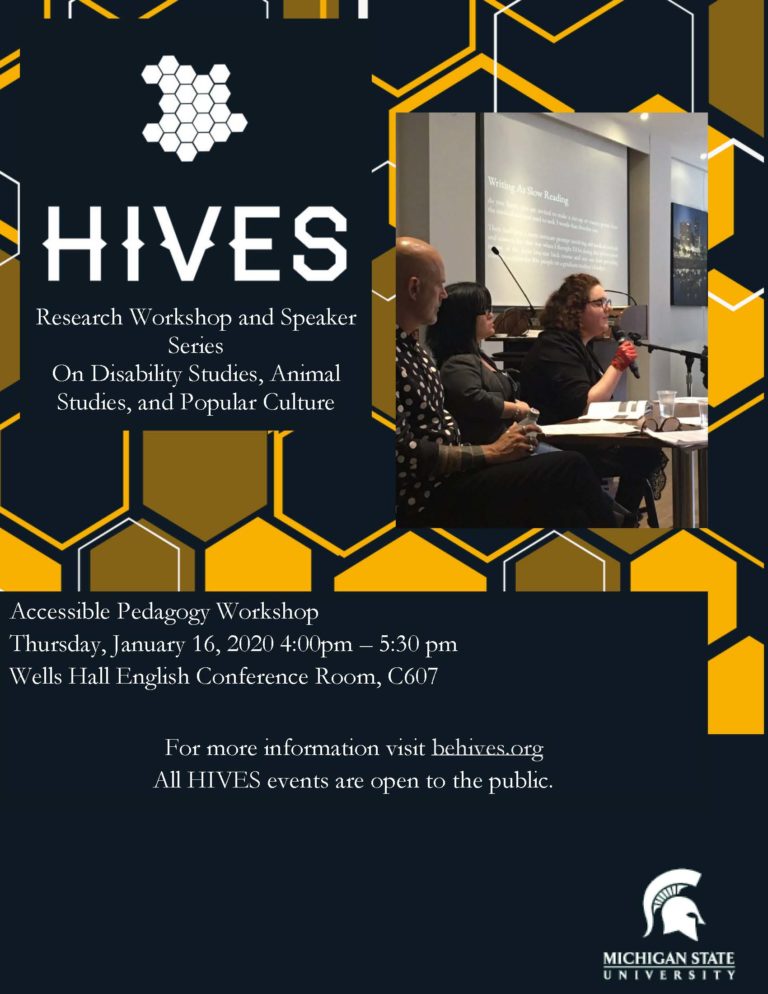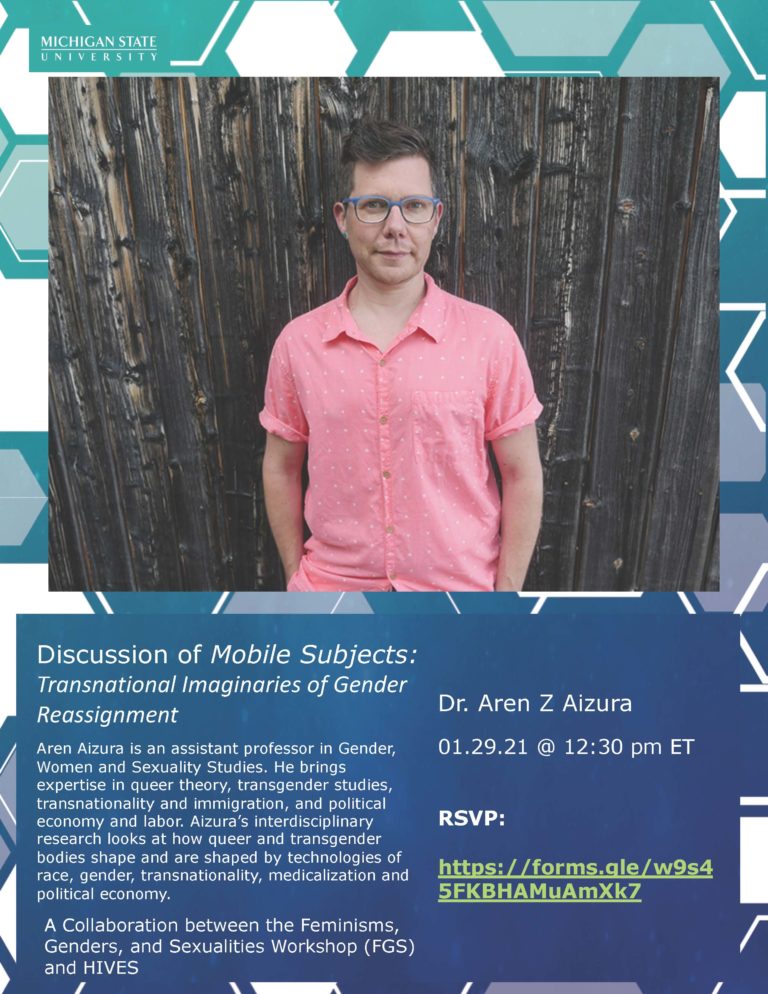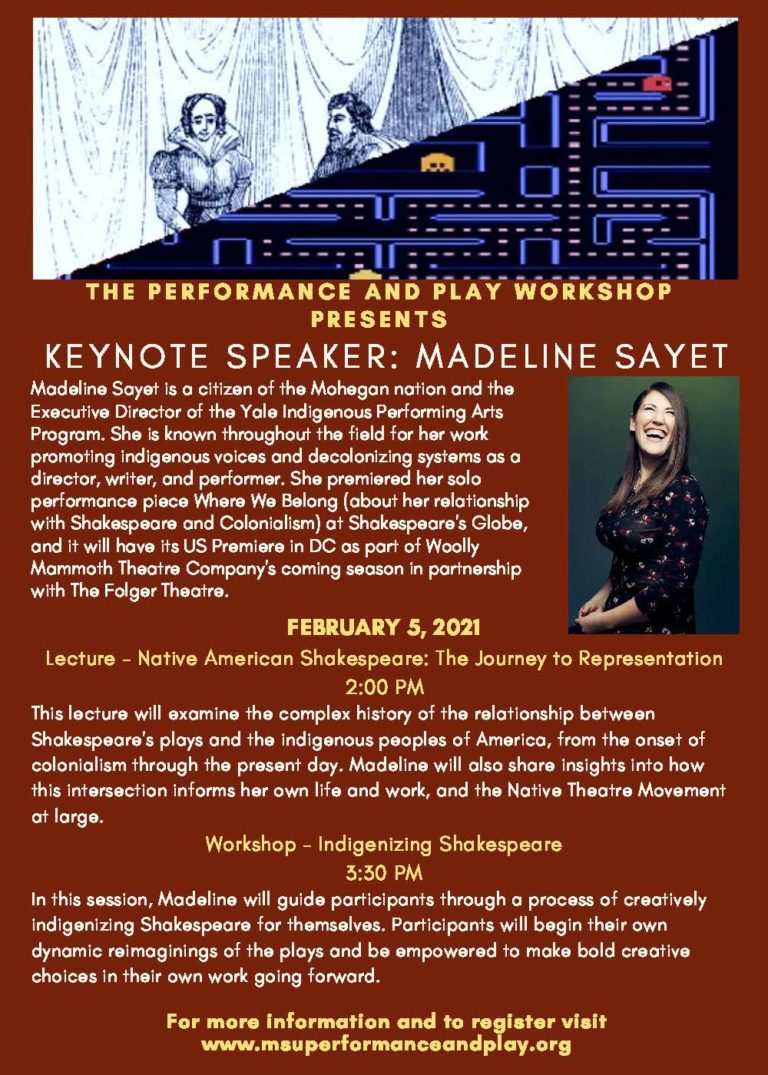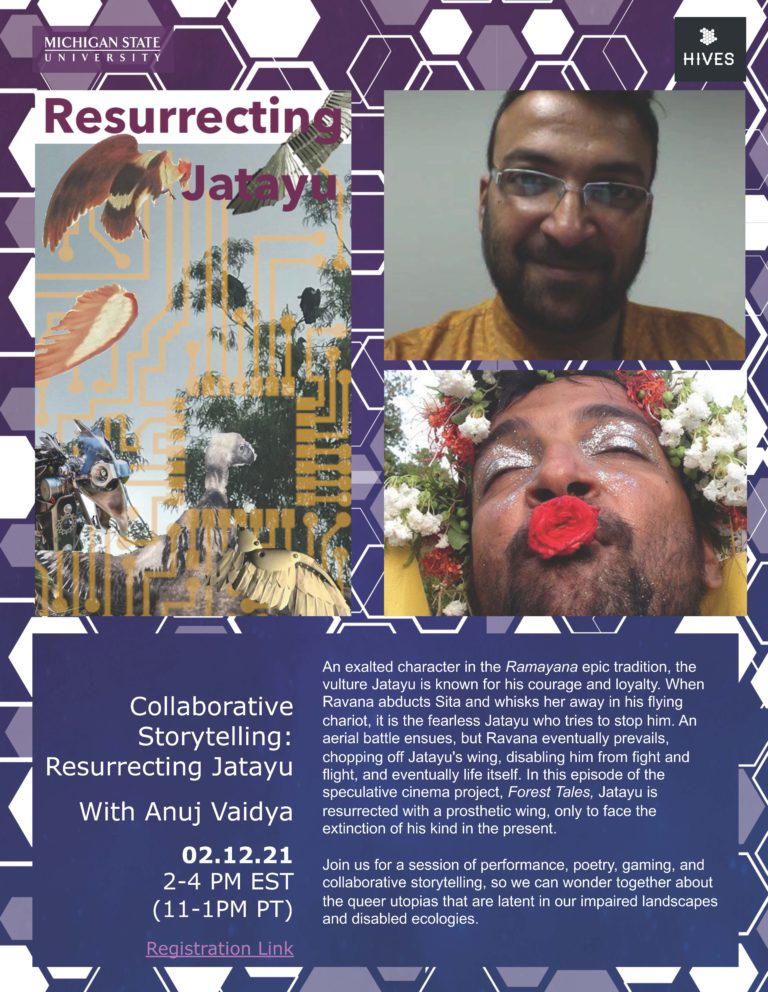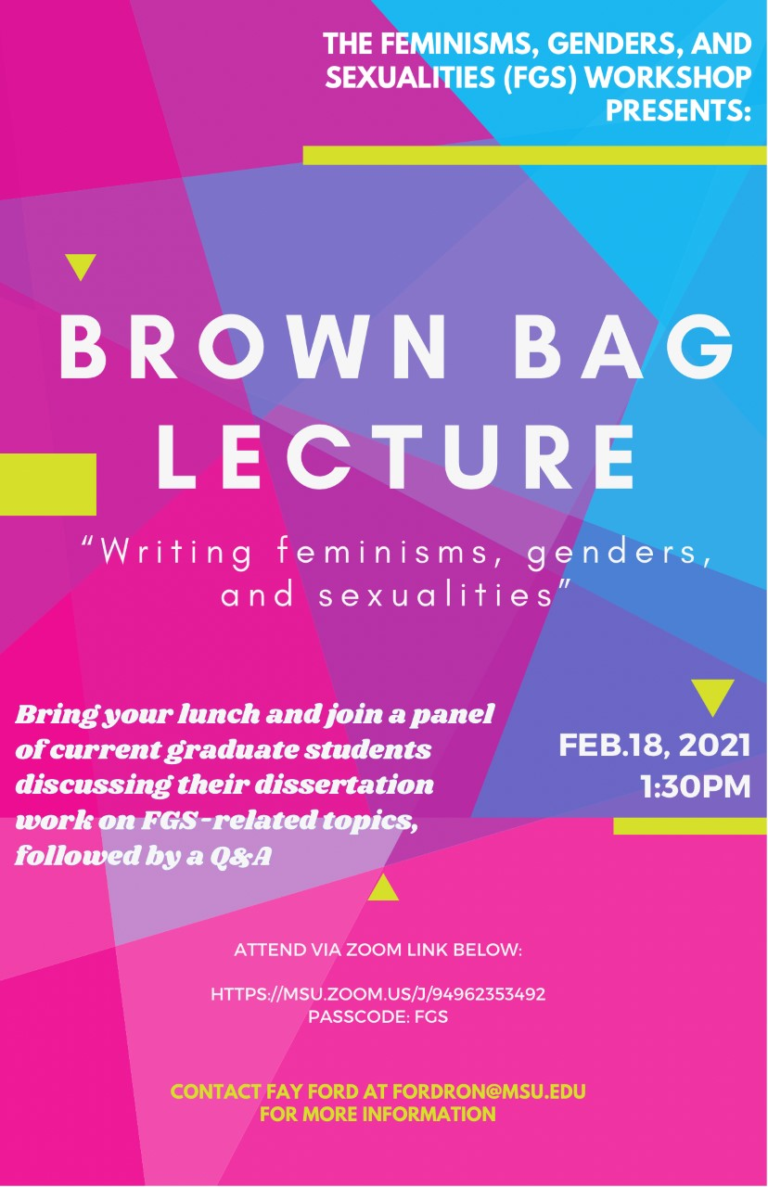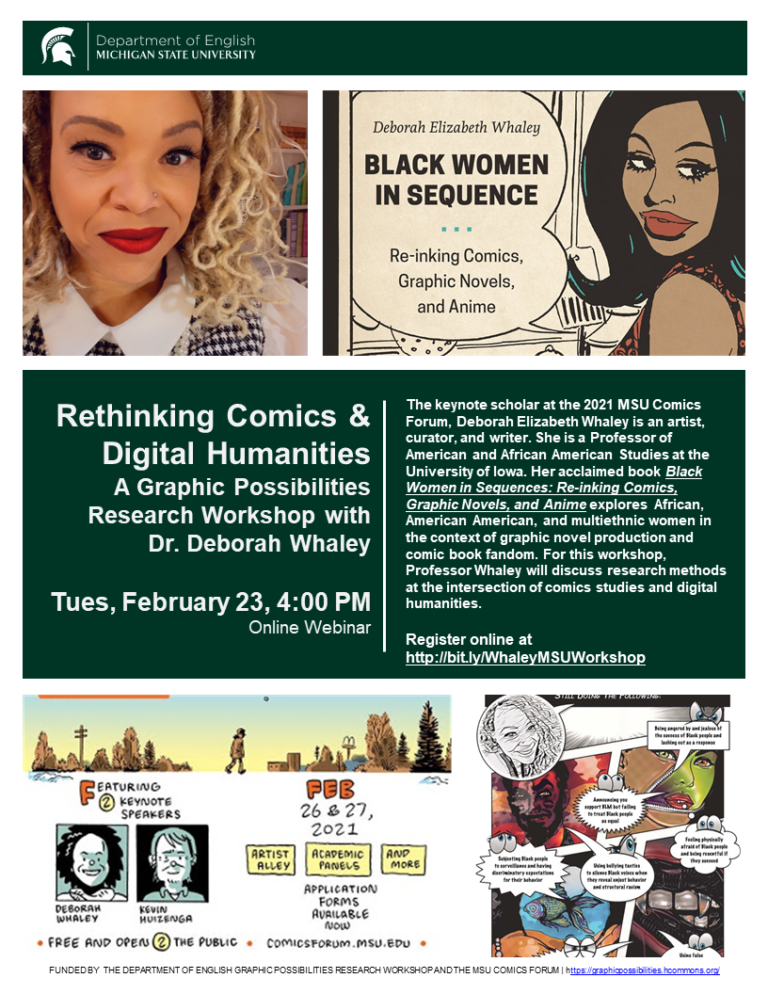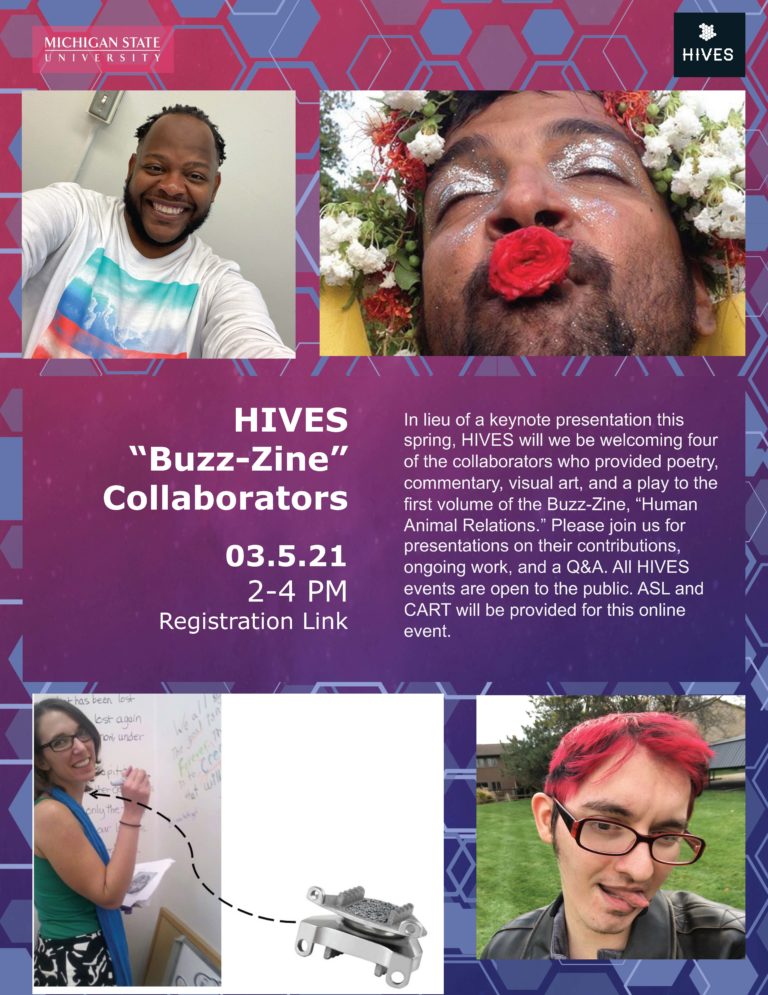Research Workshops
Every year, the Department offers a series of Research Workshops organized around scholarly and teaching interests shared among faculty and graduate students. The Workshops build intellectual community and provide an informal mentoring structure for students. The Workshops are open to all English faculty members and graduate students, and any interested members of the MSU community, and run throughout the year, meeting monthly. Each Workshop is coordinated by one faculty member and one graduate student. The Workshops will bring faculty and graduate students together for a series of conversations, talks, and special events, which may include: brown bag lunches; pedagogy discussions; writing and reading groups; excursions to talks, symposia, screenings, and archives; and visiting speakers. Workshops are often linked to the Department’s Speaker Series. The Graduate Committee vets proposals for future Research Workshops during the spring semester.
2021-2022 Research Workshops
Faculty coordinator: Ellen McCallum
Graduate student coordinators: Sen Kim and Sarah Potts
This workshop aims to create a collaborative space in which we will discuss feminist, queer, and transgender approaches to literature and culture. We act as reading group, publication workshop, and pedagogy/praxis collective. As we interrogate the ways that differences of gender and sexuality are imagined and used to create meaning, whether oppressive or liberatory, we will consider how these differences intersect with those of class, race, ethnicity, ability, and nationality. Some questions that shall guide our reflections on our research, teaching, and praxis include the following: How are constructions of gender and sexuality used to sustain white supremacy, a patriarchal and racist set of beliefs and institutions? How are they used to drive neoliberalism, with its economization of all domains of life? And, crucially, what are the possibilities for resisting these historical processes to create more inclusive, democratic worlds? We invite interested graduate students and faculty to participate.
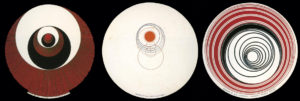
September 17: Liz Deegan, “Disgust in the American Queer Underground:
Building Community with George Kuchar and Holy Titclamps”
October 15: Alison Griffiths, “A Different Story: Recreation and Cinema in Women’s Prisons and Reformatories”
November 5: Lyn Goeringer, “David Lynch, Threnody, and the Ever-Inward Gaze”
November 19: Cristóbal Martinez, On narrative crime fiction in Mexico and its mediation between sensational press and Mexico’s noir cinema
December 10: McKayla Sluga, “Self-Study and Guided Study: Magazines, Journals, and Newspapers as Film Education”
January 14: Justus Nieland, “Organic Creativity: Alden Dow’s Small Gauge-Architecture and Chemical Modernity”
February 4: Kuhu Tanvir, Transmediating Hindi film songs
February 25: Pedro Doreste, “Commonwealth and Revolution: The Cinema of Oscar Torres”
March 18: David Humphrey, On deep learning and images
April 8: Mashya Boon, “Close Encounters of Cinematic Clones: Continuous Consciousness & Continuous Corporeality in Four Case-Studies”
April 22: Decolonial Pedagogies Workshop
2020-2021 Research Workshops
Faculty coordinators: Kinitra Brooks and Yomaira Figueroa
Graduate student coordinators: Ronny Ford, Cristóbal Martinez, Sarah Potts, and Marisa Mercurio
This workshop aims to create a collaborative space in which we will discuss feminist, queer, and transgender approaches to literature and culture. We act as reading group, publication workshop, and pedagogy/praxis collective. As we interrogate the ways that differences of gender and sexuality are imagined and used to create meaning, whether oppressive or liberatory, we will consider how these differences intersect with those of class, race, ethnicity, ability, and nationality. Some questions that shall guide our reflections on our research, teaching, and praxis include the following: How are constructions of gender and sexuality used to sustain white supremacy, a patriarchal and racist set of beliefs and institutions? How are they used to drive neoliberalism, with its economization of all domains of life? And, crucially, what are the possibilities for resisting these historical processes to create more inclusive, democratic worlds? We invite interested graduate students and faculty to participate.
FALL 2020 | FEMINISMS, GENDERS, AND SEXUALITIES RESEARCH WORKSHOP
BLACK FEMINIST FILM SCREENING
September 18 | 1:30–3:30pm
via Zoom
Join us for a screening and discussion of The Watermelon Woman (1996).
GUEST CO-WORK
October 16 | 1:30–3pm
via Zoom
Dr. Tamar Boyadjian and Ronny Ford join us to discuss their work on translation and queer theory in “Robin Hood and the Monk.”
VISUAL PEDAGOGY WORKSHOP
Co-Sponsored with GP November 19 | 1:30–3pm
via Zoom
Join us to discuss the graphic novel adaptation of Kindred and pedagogical approaches to visual media.
ELI CLARE EVENTS
Co-Sponsored with HIVES
November TBD
via Zoom
Activist and poet Eli Clare joins us to explore intersections of disability and queerness.
Faculty coordinator: Julian Chambliss
Graduate student coordinators: Justin Wigard and Ronny Ford
Graphic Possibilities is a research workshop in the Department of English at Michigan State University. This research workshop engages with comics through two interrelated branches, critical inquiry and engaged pedagogy, as a means of bringing together faculty and graduate students with current and burgeoning interests in comic studies. Critical inquiry manifests in any number of ways through comics, including treating comics as data, comics as scholarship, and comics as critical-making, what Stacey Robinson and John Jennings term to be a methodological approach that insists scholars engage with broader critical and cultural conversations through the act of making comics. Alongside of this, we explore how scholar-practitioners can make pedagogical interventions about/through the comics medium in an effort to develop new strategies for teaching and working with comics pedagogically. For a list of our events (past, present, and upcoming), and to learn more, please visit us at https://graphicpossibilities.hcommons.org/.
Faculty coordinators: Professors Stephen Deng and Jyotsna G. Singh
Graduate student Coordinators: Katherine Knowles, Emily Yates, Jonathan Thurston
Spring 2021 Semester
In this workshop, we will explore numerous intersections of “performance and play” in their various meanings and implications, spanning from the Medieval period to the contemporary world. Current research in performativity and performance studies is one area we intend to explore, with workshops focused on artistic performances of various kinds (theater, film, dance, musical, etc.): these would include the burgeoning, cross-racial and cross-cultural Shakespeare adaptations on stage and screen, as well as other performance traditions, some of which are outside of formal artistic venues, such as street performances, activist events and protests, and online video-sharing (e.g, YouTube or TikTok). Next, we will also consider performance as forms of embodiment based on race, gender, sexuality, disability, and species (e.g., animals and other non-human entities). In addition, we will explore video games as a form of performance and play, including not only the performance of the game player but also the spectatorship of game-playing. In all these modalities, we take into account the roles of varying audiences. Moreover, we will consider performance as a measure of achievement of one’s responsibilities (to perform one’s duties as is measured in a “performance review”) and the role of play as an alternative to such regimented performances (e.g., work vs. play). Thus, our workshop events will move along two conceptual axes: “Performance” implying a structured, role-playing, dramatic event and “Play” evoking more fluid, spontaneous, playful improvisational, multi-media. explorations
Although as coordinators, our primary research intersects with early modern theatre and culture, our work also reflects cross-disciplinary interests in diverse performative traditions and theories of performativity. Thus, we propose an inclusionary structure for this workshop — one that will draw various constituencies within the department and college: i.e. the game studies guild, disability studies scholars, scholars of recent European drama, creative writers, theatre practitioners, as well as pre-modern and early modern faculty and students. Our plans include a Presentation/workshop (live or via Zoom) of Madeleine Sayet: “A member of the Mohegan Nation, Sayet explores indigenous perspectives and reimagines classic plays through her work as a theater director, performer and writer.” https://www.forbes.com/profile/madeline-sayet/#139be2013c07. We have got a commitment from her for early February. Other events we are planning an interactive presentation by the Department’s “Game Studies,” and a roundtable discussion, and related film screenings.
Faculty coordinator: Professor Mahoney
Graduate student Coordinator: Asif Iqbal
Each year, the Department appoints an advanced graduate student to coordinate a series of engaging workshops on writing and pedagogy. In consultation with the Associate Chair for Graduate Studies and the graduate student body, the Writing and Pedagogy Coordinator assembles a workshop schedule devoted to various aspects of graduate students’ work as scholars, writers, and teachers. Often, these workshops feature faculty and advanced graduate students.
Approaches to Stand-alone Classes
Schedule: January 21, Thursday, 3: 30 PM – 5: 00 PM
Participants: Dr. Tamar Boyadjian, Rebecca Fussell
Publication
Schedule: February 19, Friday, 2: 30 PM – 4: 00 PM
Participants: Dr. Kinitra Brooks, Briona Jones, Justin Wigard
Conferencing
Schedule: March 12, Friday, 2: 30 PM – 4: 00 PM
Participants: Dr. Kathleen Fitzpatrick, Jessica Stokes, and Michael Stokes
Diversity Statement Workshop
Schedule: April 09, Friday, 2: 30 PM – 4: 00 PM
Participants: Dr. Joshua Lam, Sandy Burnley, Jonny Thurston
2019-2020 Research Workshops
Faculty coordinators: Ellen McCallum and Kristin Mahoney
Graduate student coordinators: Marisa Mercurio and Ronny Ford
This workshop aims to create a collaborative space in which we will discuss feminist, queer, and transgender approaches to literature and culture. We act as reading group, publication workshop, and pedagogy/praxis collective. As we interrogate the ways that differences of gender and sexuality are imagined and used to create meaning, whether oppressive or liberatory, we will consider how these differences intersect with those of class, race, ethnicity, ability, and nationality. Some questions that shall guide our reflections on our research, teaching, and praxis include the following: How are constructions of gender and sexuality used to sustain white supremacy, a patriarchal and racist set of beliefs and institutions? How are they used to drive neoliberalism, with its economization of all domains of life? And, crucially, what are the possibilities for resisting these historical processes to create more inclusive, democratic worlds? We invite interested graduate students and faculty to participate.
Sharon Patricia Holland, September 20, 3-5pm
Faculty Coordinators: Dr. Zarena Aslami (Fall 19) and Dr. Scott Michaelsen (Spring 20)
Graduate Student Coordinators: Jessica Stokes and Michael Stokes
Do you have HIVES yet? Are you part of a bee hive? Are you covered in hives from anticipation? Do you have a fungal infection? This research workshop seeks to create a generative space for conversations at the intersections of disability studies and animal studies in popular culture. In his book Brilliant Imperfection, Eli Clare emphasizes how “White Western culture goes to extraordinary lengths to deny the vital relationships between water and stone, plant and animal, human and nonhuman, as well as the utter reliance of human upon human” (Clare 136). Clare offers the disability studies notion of interdependence as a way to undo fantastical narratives of independence and the individual. We see HIVES as an engagement with hiveminds, relationality, and interdependence across and within animal/human divides. This research workshop will draw on popular culture in the form of novels, films, and video games and theory from disability studies to critical race theory to queer studies to animal studies in order to think through disrupting white western denials of interdependence. We will seek to answer: what are the potentials and pitfalls of the overlap between disability and animal studies? what forms of inter-reliance arise from lived disabled existence and/or representations of disabled characters in popular culture? what does (and does not) separate animals and humans? what frictions exist in turning to animal studies to find alternate conceptions of relational being? Such questions have been the subject of fierce and frequent discussion at the intersections of these fields (Consider the kerfuffle surrounding eugenicist Peter Singer’s invitation to the Animal Law Conference in Nova Scotia and/or the Crip Technoscience Manifesto published in Catalyst that argues for interdependence in everyday interactions with technology).
Drawing on participant-selected popular culture objects, the working group will scaffold our discussions with relevant theory that proposes alternate ways of thinking through networks of support. These works will be a guideline for collaborative discussions in which we seek to reimagine our notions of relationality.
Thursday, September 12 (inaugural meeting) 4pm. 6th floor conference room.
Thursday, October 17 [October 3/10?], 4pm
Thursday, November 14, 4pm
Thursday, December 5, 4pm, Petra Kuppers
Thursday, January 16th
Thursday, February 13th
Thursday and Friday March 19-20 Clare Keynotes/Workshops collaboration with FGS, Writing Center)
Faculty Coordinator: Julian Chambliss
Graduate Student Coordinators Zack Kruse and Justin Wigard
Fall 2019
The year-long workshop series will engage with comics through two interrelated branches, critical inquiry and engaged pedagogy, as a means of bringing together faculty and graduate students with current and burgeoning interests in comic studies. In the fall semester, this workshop will focus on how scholar-practitioners engage with comics. Our first speaker, John Jennings (UC Riverside) and Stacey Robinson (the University of Illinois at Urbana-Champaign), will discuss their work and the critical interventions they make in academic and popular conversation. This initial presentation will invite participants to discuss current critical debates within the field and segue into our second proposed speaker Corey Creekmur (University of Iowa), who will discuss his work as comics and visual media scholar as well as his work as the Comic Culture Series editor at Rutgers University Press, which will include discussion about the monograph Proposal Process. These fall semester workshops will result in a panel of graduate students presenting comics-based research at the MSU Comics Forum in the Spring semester.
Spring 2020
In the spring semester, this workshop series will focus on how scholar-practitioners make pedagogical interventions about/through the comics medium in an effort to develop new strategies for teaching and working with comics pedagogically. The spring semester workshops will first feature scholar-practitioner Nick Sousanis (San Francisco State University) in conjunction with his keynote address at the MSU Comics Forum. Professor Sousanis will discuss his own comics work and process, Unflattening Comics which has been taught in recent MSU graduate seminars, as well as his pedagogic approach to comics in the classroom and teaching those students with limited access to or experience with the medium. The second session, featuring Dr. Rachelle Cruz (UC Riverside), will also be pedagogically driven and consider Dr. Cruz’s comics studies textbook, Experiencing Comics, in order to discuss approaches to critical engagement with the medium as well as intentional text-selection for courses interested in comics and graphic narratives. This spring semester series will result in a final workshop focused on the development of comics-based syllabi which can then be utilized for course proposals for the 2020-2021 academic year. Alongside this, the workshop series will work with the MSU Library to begin creating an Open Electronic Resource (OER) aggregating comic sources for classroom use.
John Jennings and Stacey Robinson, September 26, 3-5pm
John Masherah, President of Upper Deck/Business of Pop Culture, October 15, 4pm
Corey Creekmur, October 29, 3-5pm
Conference abstract workshop, November 5, 3-5pm
Nick Sousanis, February 20
Rachel Cruz, March 17 (via Zoom), 3-5pm
Yvonne Chireau in conjunction with the Department of Religious Studies, March 19, 3-5
Syllabus/Course Proposal Workshop, March 24, 3-5pm
OER Workshop, April 7, 3-5pm
Everything You Wanted to Know about Teaching IAH But Were Afraid to Ask (PART 1)
August 22, 4-5 PM, Wells C-607
This workshop is geared toward new graduate students in our program, as well as other members of our graduate community who are assigned the teaching assistant position for MSU’s Integrative Arts and Humanities (IAH) classes. This workshop will start with the basics, including what your duties and responsibilities are, as well as a grad student’s perspective on how to effectively balance the workload with your scholastic responsibilities as a graduate student. The workshop aims to students who may be approaching this IAH assistantship with no teaching experience, while also helping students who do have some teaching experience navigate the teaching assistant role. You will get an idea about what kind of student will be teaching, what kind of training that student has had before taking an IAH class, as well as some advice on how to manage the needs of your students through the course of the semester. Additionally, several of the department’s peer mentors will offer their advice and experiences on what has worked for them in their semesters as IAH graduate assistants.
Everything You Wanted to Know about Teaching IAH But Were Afraid to Ask (PART 2)
TBA: Tentatively, Friday Sept 6 or Sept 13th
This workshop will serve as a low-key follow-up to the workshop held for new graduate students and those teaching MSU’s Integrative Arts and Humanities classes. It will provide a space for talking through how your first few weeks as a recitation leader/new graduate student have gone. As a group, we will discuss what’s been fun, exciting, and also what challenges you have faced. We will work to help find solutions to any issues that may have arisen—those we may have expected and those we have not. The workshop will offer a safe space for frank discussion among graduate students where we can cut loose, check-in, and help manage any anxiety or uncertainties you may have.
Comps 101
Friday Oct. 4, 2:00-4:00
You might be nearing the end of coursework and are thinking about how best to tackle your comprehensive exam experience. This workshop will give you a place to start by thinking about how to wrangle your interests into comprehensive exam lists, along with some general advice on how the comprehensive exam proposal document might emerge through those lists. Dr. Scott Michaelsen will attend, and talk us through a variety of approaches that his students have taken. Our main goal for this workshop is to have you leave with a concrete plan of action that will help you begin the process of narrowing down your interests, articulating your research questions, and drafting that all-important proposal document.
Demystifying Publication
Tentatively: Nov 1 at 2PM
Given the realities of the academic job market, publishing your scholarship is essential to making yourself marketable. No matter where you are in the course of your graduate student career, it is never too early (or too late) to start taking publication seriously. This workshop hopes to make the publication process more approachable by talking to Kurt Milberger of our own MSU Press. Our goals in this workshop are to get an insider’s perspective on all of our burning questions about publishing as graduate students. What sets a seminar paper apart from a publishable article? What does peer review actually look like? How does one communicate with editors? Answering questions like this, this workshop aim to provide a unique perspective on what it takes to publish and how you can get started transforming those publication aspirations from anxiety-producing obstacles to into achieved professional goals.
Close Reading
Friday, January 24, 2-4pm.
This workshop focuses on how and why to teach close reading in both the literature and film classrooms. We will consider how close reading can benefit our students and what learning goals can be fostered via this practice. For instance, how can close reading help students engage with and analyze texts in new and surprising ways? Also, what kinds of skills does close reading give students that reach beyond reading a text? Additionally, we talk about how close reading can be a way to facilitate classroom discussion and look at strategies to that end. Guest graduate students and/ or faculty members will join us to share their close reading best practices. Please bring your ideas, experiences, and questions!
Feminist Pedagogies
Friday, February 21, 2-4pm
During this workshop, participants will discuss what feminist pedagogies are and how and why to employ them in the classroom. Because emphases on diversity, inclusion, and intersectionality are central tenets of feminist pedagogy, these classroom elements will be part of this workshop. Our time will also be combined with questions and conversations about teaching as a form of social justice work. For instance, is all or any teaching social justice work? Can it be? Should it be? Guest graduate students and/ or factually members will join us to share their own feminist teaching practices and what it means to them to be a feminist pedagogue. As usual, please bring your ideas, experiences, and questions. Also feel free bring a syllabus you have used before or one you are planning to use, as there may be time to discuss how to make your syllabus “more feminist” (and, of course, this means more than simply adding more works made by woman-identified folks).
What is Writing?
Friday, March 20, 2-4pm
In this workshop we will gather to discuss what constitutes writing. In so doing, let’s talk about what “counts” as writing. For example, if you work on citations or outlining during your daily writing time, can that be considered as writing? What about typing out quotes? How about when finding a quote leads you to read rather than write? In other words, writing can’t just be about getting sentences on the page, right? Time will also be devoted to thinking about different kinds of writing—we’ll discuss writing across different media (i.e. video or photographic essays) and writing across genres (i.e. blogging, reviews, or non-academic writing). Graduate student and/ or faculty members will join us to talk about their writing processes, and please bring your ideas and questions.
Diversity Statement Workshop
Friday, April 17, 2-4pm
It is becoming more and more common that a diversity statement is required as part of the job market materials package. The purpose of this workshop, then, is to discuss what a diversity statement should include, the kinds of language it should use, and what exactly it should communicate to a potential employer. We will also think about how to highlight your own professional experience in this document and take a look at samples. As always, please bring your ideas, experiences, and questions.
2018-2019 Research Worshops
Organizers: Dr. Emery Petchauer, Briona Jones, Seohyun Kim
“How do People Grow in Racial Consciousness? A Look at Theories of Change.” September 27th, 4:30-6:00 pm. Wells B243. Discussion led by the organizers.
“Can I Say That? Contested Racial Language in the Classroom.” November 29th. 4:30-6:00 pm. Wells B-243. Discussion led by the organizers.
Dr. April Baker-Bell (Michigan State University). “Black Language is good on Any MLK Boulevard Despite What Haters Have To Say: Toward on Anti-Racist Approach to Black Language Education.” January 24th, 4:30-6:00 pm. Wells B-243
Dr. Tim Lensmire (University of Minnesota). February 8th. 3:00-4:30 pm. Wells C-640.
Dr. Beverly Guy-Sheftall (Spelman College). April 11th, 4:30-6:00 pm. Wells B-243.
Organizers: Dr. Kristin Mahoney, Rebecca Fussell, and Sarah Panuska
Discussion: “The Pasts and Futures of Queer and Trans Studies.” September 24th. Readings to be discussed: Kadji Amin, “Haunted by the 1990s: Queer Theory’s Affective Histories”; E. Patrick Johnson, introduction to No Tea, No Shade: New Writings in Black Queer Studies; C. Riley Snorton, “Devine’s Cut: Public Memory and the Politics of Martyrdom,” from Black on Both Sides: A Racial History of Trans Identity
“The Sexual Justice Syllabus.” October 29th. 2:00-3:30. Wells C-607.
Dr. Yomaira Figueroa (MSU). Discussion of Dr. Figueroa’s book chapter, “Intimacies.” November 26th. 4:30-6:00. Wells C-607
Abstract: This chapter stems from my book-manuscript, Decolonizing Diasporas, which examines post-1960s diasporic/exilic Afro-Latinx Caribbean and Equatoguinean texts in relation. In it, I examine how dictatorship and military occupation impact intimate, kinship, and community relations in Juan Tomas Avila Laurel’s Arde el monte de noche, Trifonia Melibea Obono’s La bastarda, and Nelly Rosario’s Song of the Water Saints. I trace how these works reveal how structural domination shapes and impacts everyday intimate practices including: access to sustenance, sociality, and sexual desire. While erotic desire is central to thinking about intimacy, I attempt to expand the intimacies of dictatorship to include kinship ties, quotidian needs, and communal relations. I contend that the three works discussed in this chapter, center the oft-obscured subjectivities of Afro-femmes and show how erotic freedoms emerge and travel, in relation to/against/outside of dictatorship, occupation, and coloniality. While these erotic and corporeal freedoms are often severely punished, the authors demand a particular labor from the reader, which is to bear witness to the interstitial effects of domination and to take note of how erotic freedoms emerging from Afro-femme subjects challenge the intimacies of dictatorship and occupation.
Dr. Jessica Marie Johnson (Johns Hopkins University). “Dark Codex: History, Blackness, and the Digital.” Co-sponsored with the Womxn of Color Initiative. February 8. 12:00-2:00. International Center Room 303.
Dr. Kadji Amin (Emory University). “Transing: An Ontology of Race and Species.” March 22nd. 1:30-3:00. Wells B243.
Abstract: In an introduction to a special issue of WSQ, Susan Stryker, Paisley Currah, and Lisa Jean Moore write that scholars “have become familiar, over the past twenty years or so, with queering things” and ask “how might we likewise begin to critically trans- our world?” This talk contributes to the burgeoning inquiry into material transings of sex, race, and species, while interrogating the affirmative and even utopian valence of such inquiry. It asks, “What are trans crossings of embodied borders and speciated and racialized differences good for?” Amin takes a literal approach to this question, focusing on the early twentieth-century medical fervor for the transplantation of glands, in particular the ovaries and testicles, across sex and species, with distinct racializing effects. Through the science fiction of the period, Amin argues that glandxenotransplantation was a form of transing that constituted, rather than troubling, the biological concepts of sexual, racial, and species difference. Transing is therefore a historical ontology of race and species.
Final Meeting/Potluck. Hosted by Dr. Kristin Mahoney. Friday, April 12th.
Organizers: Dr. Kaveh Askari, Amrutha Kunapulli
Dr. Lyn Goeringer (MSU). “The Spirits of the Grid.” September 24th. 2:00-4:00pm. Wells C-640
Dr. Michael Kunichika (Amherst College). “’The Filmic Colonization of Russia has Misfired: Mikhail Kalatozov’s Salt for Svanetia (1930), Anti-Exoticism, and the Fate of the Sublime.” November 12th. 3:00-4:30. Wells C-640.
Organizers: Drs. Scott Michaelsen and Ellen McCallum, Katie Greulich, and Christine Peffer
Discussion: “Science Studies and the Climate Syllabus.” February 15th. 1:30-3:00pm. Wells C-607
Dr. Kate Holterhoff (Georgia Tech). “Histories of Science.” January 18th. 1:30-3:00pm. Wells B442.
Dr. Gerry Canavan (Marquette University). Discussion of “The Suvin Event” and “On Not Definite Science Fiction,” and discussion of an “Eco-Syllabus.” March 15th. 1:30-3:00pm. Wells C-640.
Dr. James Leo Cahill (Toronto University). “Belly to the Ground, Looking at Insects. Note on the Entomological School of Cinema.” April 19th. 3:00-5:00. 110 Chittenden Hall.
Abstract: “The photogénie of insects no longer needs to be proven.” Taking André Bazin’s assertion of the firmly established cinematic attractiveness of insects as a point of departure, this talk considers entomology (the study of insect morphology and behavior) as both a privileged subject and theoretical orientation for an important strain of filmmaking and criticism in 20th century France. From Etienne-Jules Marey and Lucien Bull’s fin de siècle chronophotographic studies to films by Jean Painlevé, Pierre Thévenard, Samivel, and contemporary filmmakers Claude Nuridsany and Marie Pérennou, the lives of insects have served as key subjects of natural historical inquiry and fodder for philosophical reflection (amplified by the surrealism of scalar interplays involved in filming them as well the tendency ethnology to veer towards fable). As a theoretical orientation, entomology provided a model of cultural analysis, such as developed with some irony in Bazin’s “Entomology of the Pin-Up Girl,” as well as the practice of cultural production trained to observe phenomena with a mixture of alien rigor and what Bazin referred to as “lucid humility”: a critical orientation merging an interest in humus (earth) with forms of clarity, cruelty, and love associated with both insects and their observers. Viewed from a present marked by a rapid decline in insect populations inaugurated in the postwar intensification of efforts to control the populations of pests and vectors, the entomological school of cinema offers experiments in perception—beginning from a position with one’s belly on the ground, looking at insects—for reconsidering the entangled worlds of mites and men
Professionalization: What is (on) a CV?
This will be a two-part professor-led workshop. In the first half, professors will describe and detail what belongs on a CV, what does not, how to strategize the presentation of accomplishments, type of language to use, difference between resume and CV, etc. In the second half, attendees will work in break-out groups with one of the workshop faculty to go over, get feedback on, and ask questions about attendee CVs. The purpose of this workshop is to familiarize graduate students with basic purpose, function, and language of CVs. This workshop is ideal for all graduate students, but especially recommended for those going on the job market.
Writing: The Comprehensive Exam Proposal
This writing workshop will focus on the how-to of the comprehensive proposal, building a list, studying for the exams, and jumping from comprehensive exams to the dissertation. It will feature a panel of faculty discussing the process, and a second panel of post-exam (ABD) students who can share their personal insights, tips, strategies, etc. While each student’s exam process is idiosyncratic and based in part on their committee’s demands, the workshop will benefit students by allowing them to share strategies for thriving during the often dreaded, but ultimately rewarding, process. This workshop is suggested for all first-, second-, and third-year PhD students and any MA students who want to look ahead to the process.
Writing: The Dissertation Proposal
This writing workshop will focus on the how-to of the dissertation proposal. Like the comprehensive exam workshop, it will feature faculty and students who have completed their proposals discussing tips, strategies, and logic behind the dissertation proposal. The goal is to familiarize students with the genre of the proposal and give them a space to ask questions of colleagues who have gone through the process, to share information in the face of this great big step toward the dissertation, ultimately to remind proposal writers that we’re all in this together! This workshop is ideal for fourth- and fifth-year students working on their dissertation proposal, and any lower-level PhD or MA students who want a “peek” at the process.
Pedagogy: Designing Innovative Assignments
This workshop tackles assignment design. Because so much of our time is spent thinking about our syllabuses, what to add and what to cover, and because it is easy to fall into well-trod patterns of assignment types (quizzes, essays, etc.), this workshop seeks to jump start pedagogical thinking about alternative and innovative ways to engage students, meet learning goals, and lead a dynamic course. The workshop will feature faculty and advanced graduate students who work regularly with innovative or non-traditional/creative assignments, who will share the assignments they use and walk through their benefits and implementation. The workshop will also offer space for brainstorming ways to incorporate those or others innovative assignment types into your own classroom, whether in IAH recitations, WRAC, or standalone ENG courses.
Pedagogy: Diversity, Inclusion, and Classroom Management
This workshop responds to the notion that including diversity in syllabus text selection is not enough to combat systemic forces of oppression that our texts deal with, especially if the classroom discussions are unsafe, dominated by singular voices, or not productive in eliciting the sort of eye-opening thought toward issues of difference that we seek to teach about. As such, this workshop is facilitated by faculty and graduate students to discuss methods for designing diversity and radical inclusion into classroom management, from syllabus and assignment design, to discussion-leading and activity-based strategies for encourage safe, open, and illuminating academic growth. The format of this workshop is up in the air pending discussion with faculty and student workshop leaders.
2017-2018 Workshops
Coordinators: Dr. Zarena Aslami and Jess Travers
This workshop aims to create a collaborative space in which we will discuss feminist, queer, and transgender approaches to literature and culture. This year, we will act as reading group, publication workshop, and pedagogy/praxis collective. As we interrogate the ways that differences of gender and sexuality are imagined and used to create meaning, whether oppressive or liberatory, we will consider how these differences intersect with those of class, race, ethnicity, ability, and nationality. Some questions that shall guide our reflections on our research, teaching, and praxis include the following: How are constructions of gender and sexuality used to sustain white supremacy, a patriarchal and racist set of beliefs and institutions? How are they used to drive neoliberalism, with its economization of all domains of life? And, crucially, what are the possibilities for resisting these historical processes to create more inclusive, democratic worlds? We invite interested graduate students and faculty to participate.
Fall Schedule
Thursday, Sept. 28, 4:30-6:00 pm, Wells C607: Inaugural meeting and discussion of Sara Ahmed’s Living a Feminist Life
Thursday, Oct. 26, 4:30-6:00 pm, Wells C607: Discuss special issue of journal in field of feminist, gender, sexualities studies (TBD)
Thursday, Nov. 2, 4:45 – 5:45 pm, Wells B342: Skype Q & A on “Academic Journal Publishing” with Professor Jennifer DeVere Brody, Co-Editor of GLQ: Gay and Lesbian Quarterly, Professor of Theater and Performance Studies, and Director of the Center for the Comparative Studies of Race & Ethnicity, Stanford University.
Thursday, Dec. 7, 4:30-6:00 pm, C607 Wells: Workshop journal article drafts (to be emailed to participants two weeks in advance).
Spring Schedule
Thursday, Feb. 15, 4:30-6:00 pm, C607 Wells: Discuss Gayle Rubin readings
Friday, March 30, 1:00-4:00 pm in Wells B342: Queer Inclusive Learning and Leadership (QuILL) Workshop with MSU’s LGBT Resource Center. Participants must take their web course in advance (for instructions and minimum score, see their website).
Friday, April 6, 4:00 – 6:00 pm 110 Chittenden Hall: Guest Lecture by Professor Gayle Rubin (Associate Professor, Anthropology and Women’s Studies, University of Michigan): “(Gay) Sex and the (Post) Industrial City: Leathermen, San Francisco, and the Future of Queer Worlds”.
This talk explores the impact of deindustrialization on queer urban location through close examination of San Francisco’s gay male leather population in the South of Market. Five decades of relentless urban renewal and large scale redevelopment have largely transformed this formerly industrial and working-class residential neighborhood into areas of luxury housing and capital-intensive commerce, rendering its gay and leather presence increasingly precarious. South of Market and its gay leather population exemplify changes in land use and real estate markets, raising the question of whether the “gay city” has a future, and what kind of future it has.
Thursday, April 12, 4:30-6:00 pm, C607 Wells: Workshop on the Department of English “Sexual Justice” Syllabus
Coordinators: Dr. Emery Petchauer and Briona Jones
This research workshop looks to develop our abilities to teach and think with/through race frameworks and epistemologies. We will be guided by questions such as the following: How can we imagine racial justice in classrooms? What kinds of curricula generate from racial inquiry? What kinds of pedagogical moves facilitate racial consciousness development among faculty and students? In what way is race inextricably linked to other forms of oppressions, such as homophobia, sexism, and classism? Why is intersectionality a crucial site of theoretical and praxis-centered inquiry? How can/should classrooms engage with the racial justice movements of our time? We will consider questions like these in context with lit*: literacies, literature, and pedagogical lituations (i.e., classroom situation that are lit).Pursuing these questions, we hope to grow as scholars, colleagues, pedagogues, and community members.
Schedule:
Sept 21st: Examining the Charlottesville Syllabus. 4:30 to 6pm, location TBD
Oct 9th, 10:00-11:00am Wells Hall B243.: Exploring a Ratchet Epistemology with Dr. Bettina Love (in person guest).
Nov 2nd: “The Edge of Each Other’s Battles: The Vision of Audre Lorde” (film screening) 4:30 to 6pm, location TBD.
January 18th. 4pm-5:30pm, Wells Hall B243: Is My Syllabus Racist? An Optimistic Workshop. Co-sponsored by the Writing/Pedagogy Workshop.
February 8th, 3:30-5:00pm, Wells Hall B243: Beyond Hashtags: Implementing Black Lives Matter as Pedagogy. Regina Bradley, Assistant Professor, Kennesaw State University.
March 29th 4:30pm – 6:30pm, Wells B342: Poetics as Forms of Resistance: An Evening with Cheryl Clarke. Dr. Cheryl Clarke, Poet, Essayist, Activist, and Educator.
April, 26, 4:30-6pm, Wells Hall B243: Teaching in, around, and through Whiteness. Dr. Emery Petchauer, Associate Professor, Michigan State University.
Coordinators: Dr. Kaveh Askari and Amrutha Kunapulli
This workshop, with its focus on film history and theory, will offer a space for collaboration and conversation among those working either in film studies or at the intersections of film and literature or the other arts. We will primarily workshop pre-circulated submissions from local and visiting scholars—work that is new and, preferably, in-progress. This will allow graduate students and faculty to closely explore each month’s text while also attending to broader questions of research methods, publishing processes, and moving-image pedagogy. Topics steering the workshop this year will include the intersections between film historiography and aesthetic, generic, or postcolonial theory, examinations of film as text, archival object, and commodity, and a focus on geopolitical categories of world, nation, and region that are currently used to classify film.
Friday, September 22, 3-5 PM, C640 Wells Hall: Happiness by Design, Professor Justus Nieland
Friday, October 27, 1-3 PM, C640 Wells Hall: American Myths, Global Realities, Misha Mihailova
Friday November 17, 4-6 PM, Wells Hall C640: Comedy Circulates Circuitously: Toward an Odographic Film History of Latin America, Nilo Couret
Friday, January 26, 2-4 PM, Wells Hall C640: Ellen McCallum will workshop “Animate Lands: Antonioni’s Queer Narrativity” and “A Moving Which Is Not a Moving: Michael Snow’s ‘Wavelength’”.
March 28: James Naremore visit; talk/roundtable on Charles Burnett
